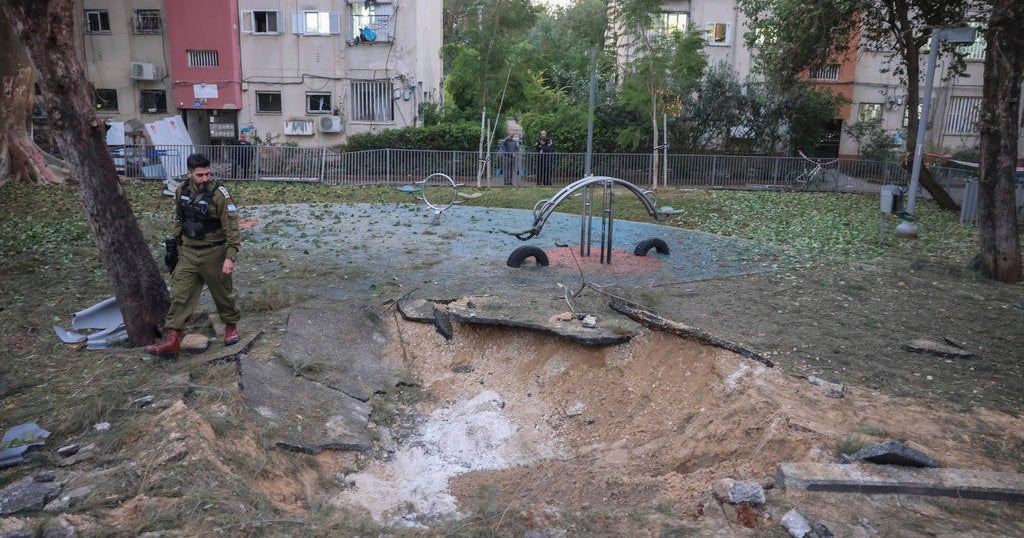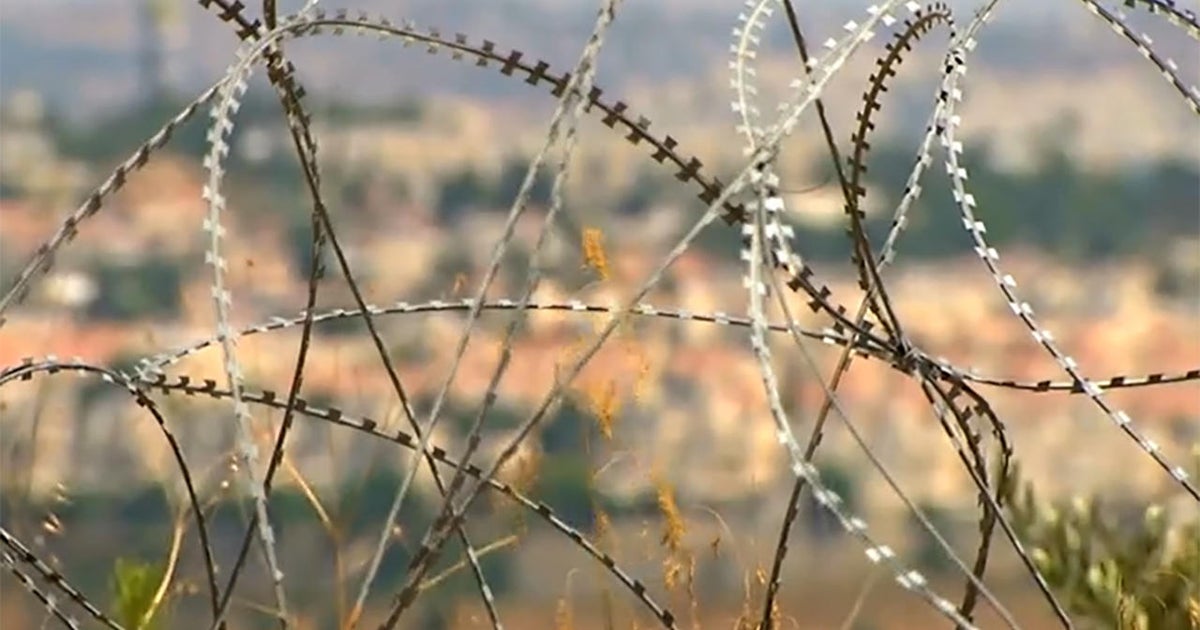Israel's Supreme Court rules that military must start drafting ultra-Orthodox men after years of exemption
Jerusalem — Israel's Supreme Court on Tuesday ruled unanimously that the military must begin drafting ultra-Orthodox men for compulsory service, a landmark decision that could lead to the collapse of Prime Minister Benjamin Netanyahu's governing coalition as Israel continues to wage war against Hamas in Gaza.
The historic ruling effectively puts an end to a decades-old system that granted ultra-Orthodox men broad exemptions from military service while maintaining mandatory enlistment for the country's secular Jewish majority. The arrangement, deemed discriminatory by critics, has created a deep chasm in Israel's Jewish majority over who should shoulder the burden of protecting the country.
The court struck down a law that codified exemptions in 2017, but repeated court extensions and government delaying tactics over a replacement dragged out a resolution for years. The court ruled that in the absence of a law, Israel's compulsory military service applies to the ultra-Orthodox like any other citizen.
Under longstanding arrangements, ultra-Orthodox men have been exempt from the draft, which is compulsory for most Jewish men and women.
These exemptions have long been a source of anger among the secular public, a divide that has widened during the eight-month-old war, as the military has called up tens of thousands of soldiers and says it needs all the manpower it can get. Over 600 soldiers have been killed since Hamas' Oct. 7 attack.
Politically powerful ultra-Orthodox parties, key partners in Netanyahu's governing coalition, which is the most far-right government the country has ever had, oppose any change in the current system. If the exemptions are ended, they could bolt the coalition, causing the government to collapse and likely leading to new elections at a time when its popularity has dropped.
In the current environment, Netanyahu could have a hard time delaying the matter any further or passing laws to restore the exemptions. During arguments, government lawyers told the court that forcing ultra-Orthodox men to enlist would "tear Israeli society apart." There was no immediate comment from Netanyahu's office.
Netanyahu says next phase in Gaza war coming soon as tension with Hezbollah mounts
The court decision comes at a sensitive time, as the war in Gaza drags on into its ninth month and the number of dead soldiers continues to mount. Netanyahu said Sunday that the current phase of the war against Hamas — marked by large-scale ground operations and intense aerial bombardment that Gaza's Hamas-run administrators say has killed more than 37,400 Palestinians — would likely wrap up "very soon."
The transition to the next phase, Israeli officials have said, will enable the military to reposition more troops close to the country's northern border with Lebanon, where it has exchanged fire with Hamas' much better-armed ally Hezbollah.
The White House has voiced concern that Israel could launch a full-scale offensive against Hezbollah, expanding the crisis in the heart of the Middle East and potentially putting U.S. troops in the region at far greater risk.
In its ruling, the court found that the state was carrying out "invalid selective enforcement, which represents a serious violation of the rule of law, and the principle according to which all individuals are equal before the law."
It did not say how many ultra-Orthodox should be drafted, but the military has said it is capable of enlisting 3,000 this year. Some 66,000 ultra-Orthodox men are now eligible for enlistment, according to Shuki Friedman, an expert on religion and state affairs and the vice-president of the Jewish People Policy Institute, a Jerusalem think tank.
The ruling of Israel's highest court must be followed, and the military is expected to begin doing so once it forms a plan for how to draft thousands of members of a population deeply opposed to service. The army had no immediate comment.
The court also ruled that state subsidies for seminaries where exempted ultra-Orthodox men study should remain suspended. The court temporarily froze the seminary budgets earlier this year.
In a post on the social media platform X, Cabinet minister Yitzhak Goldknopf, who heads one of the ultra-Orthodox parties in the coalition, called the ruling "very unfortunate and disappointing." He did not say whether his party would leave the coalition government.
"The state of Israel was established in order to be a home for the Jewish people whose Torah is the bedrock of its existence. The holy Torah will prevail," he wrote.
The ultra-Orthodox see their full-time religious study as their part in protecting the state. Many fear that greater contact with secular society through the military will distance adherents from strict observance of the faith. Ultra-Orthodox men attend special seminaries that focus on religious studies, with little attention on secular topics like math, English or science. Critics have said they are ill-prepared to serve in the military or enter the secular work force.
Religious women generally receive exemptions that are not as controversial, in part because women are not expected to serve in combat units.
The ruling now sets the stage for growing friction within the coalition over the draft issue. Ultra-Orthodox lawmakers are likely to face intense pressure from religious leaders and their constituents and may have to choose whether remaining in the government is worthwhile for them.
Friedman said the ultra-Orthodox "understand that they don't have a better political alternative, but at same time their public is saying 'why did we vote for you?'"
The exemptions have faced years of legal challenges and a string of court decisions has found the system unjust. But Israeli leaders, under pressure from ultra-Orthodox parties, have repeatedly stalled.
The Movement for Quality Government in Israel, which has helped lead the challenge against the exemptions, called on the government to immediately draft all eligible seminary students. "This is their legal and moral duty, especially in light of the complex security situation and the urgent need for personnel" in the army, said Tomer Naor, head of the group's legal department.
Netanyahu's coalition is buoyed by two ultra-Orthodox parties who oppose increasing enlistment for their constituents. The long-serving Israeli leader has tried to adhere to the court's rulings while also scrambling to preserve his coalition. But with a slim majority of 64 seats in the 120-member parliament, he's often beholden to the pet issues of smaller parties.
The government could in theory try to draft a law that restores the exemptions, but doing so will be politically challenging in light of the court's ruling.
Some moderate members of the government have indicated they will only support a law that enlists sizable numbers of ultra-Orthodox, and the legislative clock is running out with the Knesset soon to leave for summer recess. That could force the military to begin drafting religious men before any new law is in place.
Netanyahu has been promoting a bill tabled by a previous government in 2022 that sought to address the issue by calling for limited ultra-Orthodox enlistment.
But critics say that bill was crafted before the war and doesn't do enough to address a pressing manpower shortfall as the army seeks to maintain its forces in the Gaza Strip while also preparing for potential war with the Lebanese Hezbollah group, which has been fighting with Israel since the war in Gaza erupted last October.
With its high birthrate, the ultra-Orthodox community is the fastest-growing segment of the population, at about 4% annually. Each year, roughly 13,000 ultra-Orthodox males reach the conscription age of 18, but less than 10% enlist, according to the Israeli parliament's State Control Committee.




